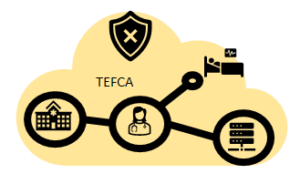 Healthcare organizations exchange sensitive health records, including behavioral health data, across peer-to-peer networks, and it is challenging to find and fix compliance issues proactively.
Healthcare organizations exchange sensitive health records, including behavioral health data, across peer-to-peer networks, and it is challenging to find and fix compliance issues proactively.
The Healthcare industry anticipates a growing need to audit substance use disorder patient data, commonly referred to as Part 2 data, having been shared without a release of information signed by the patient. To address this need, we developed and evaluated a novel methodology to detect Part 2 data exchanged between organizations that integrates Blockchain technologies with knowledge graphs. We detected substance use disorder data in patient encounters exchanged using clinical terms from value sets provided by the National Institutes of Health for the Substance Abuse and Mental Health Services Administration.
Generally, we consider sharing Part 2 data without consent as a type of Byzantine medical fault, as they represent data shared between known and trusted network participants that are valid but not relevant and sharing it causes a policy violation or a breach. Our modeling of Byzantine medical fault detection is based upon the most recent healthcare legislation, which formed the Trusted Exchange Framework and Common Agreement (TEFCA). We generate synthetic patient encounter data in HL7 format and populate it into a knowledge graph so that we can use SNOMED-CT clinical terms for identifying Part 2 data. We are updating our knowledgegraph to include more comprehensive value sets with clinical terms from ICD-9CM, ICD-10CM, and RxNorm.
Project Members
Faculty: Dr. Karuna P Joshi
Students: James Clavin
Publications
- James Clavin and Karuna P. Joshi, “Policy Integrated Blockchain to Automate HIPAA Part 2 Compliance“, IEEE International Conference on Digital Health (ICDH) 2023 in IEEE World Congress on Services 2023, July 2023.
- James Clavin, Sisi Duan, Haibin Zhang, Vandana P. Janeja, Karuna P. Joshi, Yelena Yesha, Lucy C. Erickson, Justin D. Li, “Blockchains for Government: Use Cases and Challenges“, in ACM Journal Digital Government: Research and Practice, November 2020.
Other Relevant Publications
- Guohou Shan, Boxin Zhao, James R. Clavin, Haibin Zhang, and Sisi Duan, Poligraph: Intrusion-Tolerant and Distributed Fake News Detection System
- J. R. Clavin et al., “A Framework for Evaluating BFT,” 2021 IEEE 27th International Conference on Parallel and Distributed Systems (ICPADS), Beijing, China, 2021, pp. 193-200, doi: 10.1109/ICPADS53394.2021.00030.